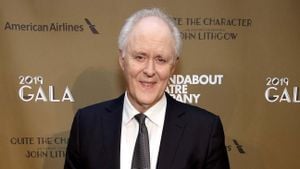President Luiz Inácio Lula da Silva is facing the lowest approval ratings of his presidency, according to recent surveys, as public discontent grows over economic issues and political isolation. A CNT/MDA survey, released on February 25, 2025, shows the negative evaluation of Lula's government has skyrocketed to 44%, up 13 percentage points from the previous round of polling conducted in November 2024.
The breakdown of the survey reveals troubling statistics for the administration. A mere 28.7% of respondents rated the government positively, consisting of 9.3% who categorized it as "excellent" and 19.4% as "good." Meanwhile, 26.3% deemed the government's performance as "adequate, " leaving 44% categorizing it as "poor" (12%) or "terrible" (32%). This marks the lowest approval figures during Lula's current term.
Tellingly, these results mirror those from other research organizations, such as Datafolha, which reported on February 14, 2025, how Lula's approval had declined dramatically to just 24%. The negative trend reflects deepening concerns about the government's effectiveness.
One key factor driving this decline is dissatisfaction related to the economy, which many perceive as disconnected from the government's positive rhetoric. The rising cost of living, particularly food prices, and currency stabilization have left citizens feeling frustrated and skeptical about economic policies. Marcus Deois, analyzing the political climate, noted, "A reform is not appealing to political parties at this moment, with resources and interests misaligned."
Personal approval ratings for Lula are also troubling, with only 40.5% of those surveyed approving of his leadership—a sharp drop from 50% just months prior. Against this backdrop, 55.3% of respondents expressed disapproval of Lula’s personal performance, the highest during his current tenure.
A staggering 64.8% of participants indicated they did not believe Lula deserves reelection. While 36.2% view his age as problematic, 43.6% assert it is not relevant to their voting decision, indicating broader concerns surrounding his political effectiveness rather than age itself.
The data reveals particularly alarming trends among constituencies previously loyal to Lula. Approval ratings have fallen among both Catholic and evangelical voters, with figures dropping from 42% to 28% and from 26% to 21%, respectively. More troubling yet is the decline within Northeast Brazil, Lula's traditional stronghold, where approval fell from 67% to 60%.
Political isolation appears to be another significant contributor to Lula's disintegrated approval, as officials report increasing frustrations among his inner circle. The shift is evident, with political scientists Fernando Abrucio and Fernando Schüler discussing it during Canal Livre, remarking, "The approval rating of the President has plummeted due to various economic and political issues."
Critiques from Lula's supporters reflect fears of his increasing inability to connect with political allies. Reports have surfaced of discord among his base, with many indicating, "The President is isolated from the political sphere and is failing to govern effectively." Such sentiments indicate declining trust and collaboration between Lula's administration and the parties needed to support legislative initiatives.
With just 20 months remaining until elections, potential reforms seem less likely as party leaders weigh the timing and feasibility of ministerial transitions when key positions lack necessary resources. The government has lost one of its traditional cards within the coalition presidentialism as no parties appear interested in picking up ministerial roles with the current disarray.
With tensions rising among political allies and economic troubles hanging over the administration, the outlook for President Lula’s government appears increasingly uncertain. The necessity of recalibrated political strategies and economic policies has never been more pressing as he stares down the barrel of potential electoral defeat.
If these trends continue, the upcoming political atmosphere will demand more significant efforts from Lula’s administration to restore both public confidence and political alliances. There's no denying the road ahead looks challenging, and how Lula navigates this course may define not only his current term but also the future of Brazil’s politics.



